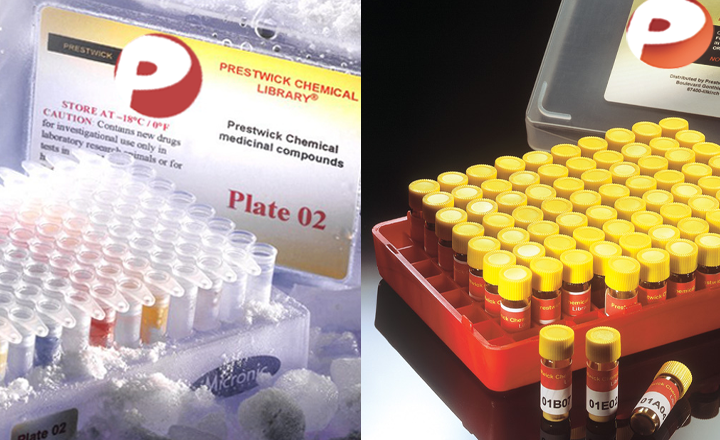High throughput screening for small molecule inhibitors of heparin-induced tau fibril formation
Crowe A, Ballatore C, Hyde E, Trojanowski JQ, Lee VM
Biochemical and Biophysical Research Communications - vol. 358 1-6 (2007)
Biochemical and Biophysical Research Communications
A library of ∼51,000 compounds was interrogated by high throughput screening (HTS) using a heparin-induced tau fibrillization assay. HTS was conducted with bacterially expressed recombinant tau fragment K18 and the reaction was monitored by thioflavine T fluorescence. Hits meeting criteria set for selection in HTS were further evaluated in a panel of assays designed (a) to confirm the initial results and (b) to identify possible false positives arising from non-specific mechanisms or assay-dependent artifacts. Two 2,3-di(furan-2-yl)-quinoxalines were confirmed as inhibitors of tau fibrillization with IC50s in the low micromolar range (l–3μM). Among false positive hits, members of the pyrimidotriazines, benzofurans, porphyrins, and anthraquinone, inhibited tau fibrillization by generating peroxides via catalytic redox cycles due to the reducing agent dithiothreitol (DTT) in the assay. This study delineates focused strategies for HTS of tau fibrillization inhibitors that are relevant to drug discovery for Alzheimer’s disease and related tauopathies.


